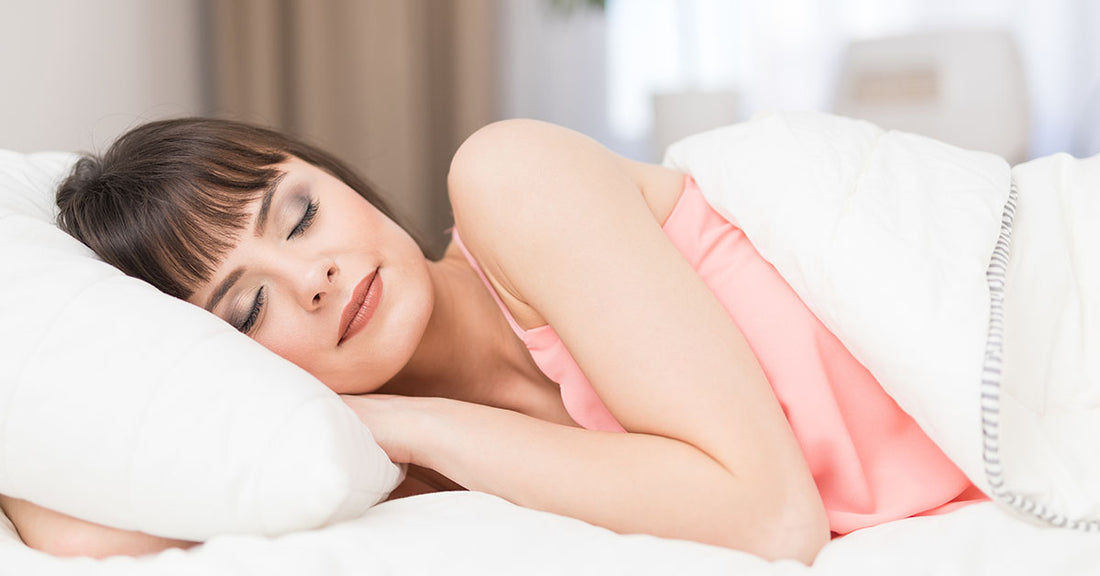Did you know that people spend about a third of their lives sleeping? During sleep, the body restores itself physically, mentally and psychologically. Without enough sleep, the body is deprived of a critical human need as basic as food, water and exercise.
Over time, a lack of sleep can have powerfully negative effects on your overall health and well-being, including:
● A weakened immune system.
● Weight gain, as people who don't sleep well, may not produce enough of the hormone leptin, which regulates your appetite.
● Circulatory problems, as a lack of sleep, can increase your heart rate and blood pressure to unhealthy levels.
● Increased irritability, depression, anxiety, and other mood shifts.
But there are a number of practical actions you can take before bed to help you achieve more sleep.
Natural Methods to Help You Sleep
Medications have side effects that can harm your health and interfere with your natural sleep cycles. So stick to natural remedies, such as:
Meditation
- Meditation can induce sleep in a number of ways. First, meditation provides the opportunity to focus solely on yourself and to clear your mind of the day’s worries, allowing your brain to rest and prepare for sleep. Secondly, proper meditation removes distractions, such as phones, TVs, or other electronic devices; these devices stimulate the brain and negatively impact the body’s production of melatonin. When meditating, focus on your breath as you inhale and exhale. If you catch your mind drifting from your breathing, simply re-direct your focus and start again. Meditating for just five minutes in bed each night can help you fall asleep. There are even mobile apps available for purchase that can guide you through practical meditation routines.
Herbal Remedies
There are a number of herbal remedies that can induce sleep. The following list of herbs has been tested scientifically, yielding results indicating they work just as well as over-the-counter medications.
-
Valerian comes from the Valeriana officinalis plant and is excellent at calming people down by reducing stress levels and promoting relaxation and sleep. The research found that valerian increases levels of gamma-aminobutyric acid (GABA) in your body; GABA is responsible for calming your neurons and reducing mental distress. Consider consuming Valerian in a tea form before bed.
There are a number of herbal remedies that can induce sleep. The following list of herbs has been tested scientifically, yielding results indicating they work just as well as over-the-counter medications. - Medical practitioners have used passionflower extract for thousands of years. Passionflower can increase the levels of GABA in your body, relax your muscles, and even ease pain.
- Chamomile tea has a cherished reputation as a calming beverage and sleep aid that dates back to the ancient Egyptians. Recently, a 2017 study found that chamomile extract is an excellent sleep aid for older people, stating that those taking chamomile fell asleep more easily and had better sleep than those who did not take the herb.
Add Sleep-Inducing Foods to Your Dinner Menu
- Cheeses, almonds, and bananas are all rich in tryptophan, an amino acid that causes drowsiness.
- Cherries are an edible source of melatonin, a hormone that regulates the sleep-wake cycle; a bowl of cherries for dessert before bed can help you drift off naturally. Frozen cherries or cherry juices are also effective ways of consuming this fruit for sleeping purposes.
If you’re struggling to fall asleep at night, try adding any of these best practices to your nighttime routine. You may be surprised at your body’s positive response to these lifestyle changes.
Interested in learning about other habits that can help your body? Read through some of Dr. Kara’s other blog posts:
● Tasty Ways to Add Beets to Your Diet
● Healthy Alternative to Not-So-Healthy Foods
● Is Malnutrition the Source of Your Fatigue?
References & Disclaimers
✝✝This noted statement is based on independent research and is not necessarily the opinion of the author
